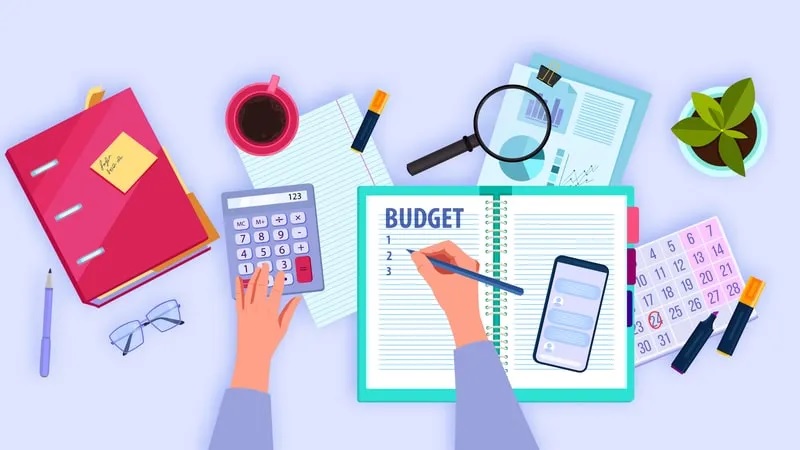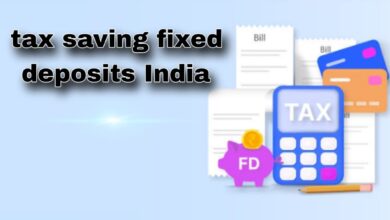Top 10 Tips for Effective Personal Budgeting
 Budgeting is the cornerstone of financial stability and success. It helps you manage your money, plan for the future, and achieve your financial goals. Whether you’re looking to save more, spend smarter, or get out of debt, effective budgeting is the first step. Here are the top 10 tips to help you master personal budgeting.
Budgeting is the cornerstone of financial stability and success. It helps you manage your money, plan for the future, and achieve your financial goals. Whether you’re looking to save more, spend smarter, or get out of debt, effective budgeting is the first step. Here are the top 10 tips to help you master personal budgeting.
1. Track Your Expenses
The first step in creating a budget is understanding where your money is going. Keep a record of every expense, no matter how small. Use tools like mobile apps, spreadsheets, or a simple notebook to track daily spending. Categorize your expenses into groups such as housing, groceries, transportation, and entertainment.
When you analyze your spending patterns, you’ll quickly identify unnecessary expenses and areas where you can cut back. For instance, that daily $5 coffee might seem small but adds up to $150 a month!
2. Set Clear Financial Goals
Your budget should align with your short-term and long-term financial goals. Ask yourself what you’re working toward—an emergency fund, a dream vacation, or a down payment on a house?
Clearly define your goals and assign a timeline. For example: “Save $5,000 for a vacation within 12 months” or “Pay off $10,000 in debt within two years.” These goals will motivate you to stick to your budget and track your progress.
3. Use the 50/30/20 Rule
A popular guideline for budgeting is the 50/30/20 rule. Here’s how it works:
- 50% of your income goes toward necessities like rent, utilities, and groceries.
- 30% is for discretionary spending, such as dining out or hobbies.
- 20% is allocated to savings or paying off debt.
This method simplifies budgeting and ensures a balanced approach to managing your money. Adjust the percentages to fit your personal circumstances if needed.
4. Create a Realistic Budget
A budget that’s too restrictive is likely to fail. Be realistic about your needs and wants. Factor in occasional expenses like birthdays or holidays.
For example, if you know you spend $200 on entertainment each month, don’t cut it down to $50. Instead, aim for gradual reductions if needed. A realistic budget is sustainable and easier to follow over time.
5. Build an Emergency Fund
An emergency fund is essential for financial security. Life is unpredictable, and unexpected expenses—like medical bills or car repairs—can derail your finances if you’re not prepared.
Aim to save 3–6 months’ worth of living expenses. Start small by setting aside a portion of your income each month. Even $50 per month can grow into a substantial safety net over time.
6. Automate Your Savings
One of the easiest ways to stay consistent with your budgeting goals is to automate your savings. Set up automatic transfers from your checking account to your savings account every payday.
For instance, if your goal is to save $200 a month, automate a $100 transfer every two weeks if you’re paid biweekly. This method ensures your savings grow without you having to think about it.
7. Pay Off Debt Strategically
Debt can hinder your ability to budget effectively. Focus on paying off high-interest debt first, such as credit card balances, while making minimum payments on other debts. This is known as the avalanche method.
Alternatively, the snowball method involves paying off the smallest debt first for a quick psychological win before tackling larger debts. Choose the method that works best for you and stick to it.
8. Monitor and Adjust Regularly
A budget isn’t a one-time task—it requires regular monitoring and adjustments. Review your budget monthly to ensure you’re on track. Did you overspend in certain categories? Did your income change?
For instance, if you received a bonus, decide how to allocate it—add it to savings, pay off debt, or treat yourself responsibly. Regular adjustments keep your budget aligned with your financial situation and goals.
9. Avoid Impulse Spending
Impulse purchases can wreak havoc on a budget. Before buying something, ask yourself if it’s a need or a want. Give yourself 24 hours to think it over—this cooling-off period can prevent unnecessary spending.
Additionally, limit your exposure to advertisements and unsubscribe from promotional emails. When shopping, stick to a list to avoid being tempted by unplanned items.
10. Celebrate Milestones
Budgeting doesn’t mean depriving yourself—it’s about managing your money wisely. Celebrate your achievements when you reach a financial milestone, like paying off a debt or hitting a savings target.
Treat yourself to something small and affordable, like a fancy dinner or a new book. Celebrating progress helps you stay motivated and reinforces positive financial habits.
Bonus Tip: Leverage Budgeting Tools
Technology can make budgeting easier and more efficient. Consider using budgeting apps like Mint, YNAB (You Need A Budget), or PocketGuard. These tools can track expenses, categorize spending, and even suggest adjustments to meet your goals.
Why Budgeting Matters
Effective budgeting is more than just crunching numbers—it’s about taking control of your financial future. A solid budget reduces stress, prevents financial emergencies, and helps you achieve your dreams.
For example, research shows that individuals who budget are 33% more likely to save for retirement and emergencies compared to those who don’t. Budgeting also improves financial discipline, paving the way for long-term stability.
Conclusion
Mastering personal budgeting is a skill that pays off for a lifetime. By tracking expenses, setting clear goals, and using practical tools, you can take charge of your finances and make your money work for you.
Remember, the key to effective budgeting is consistency. Start small, stay committed, and watch as your financial health improves over time. With these 10 tips, you’re well on your way to achieving financial freedom.



